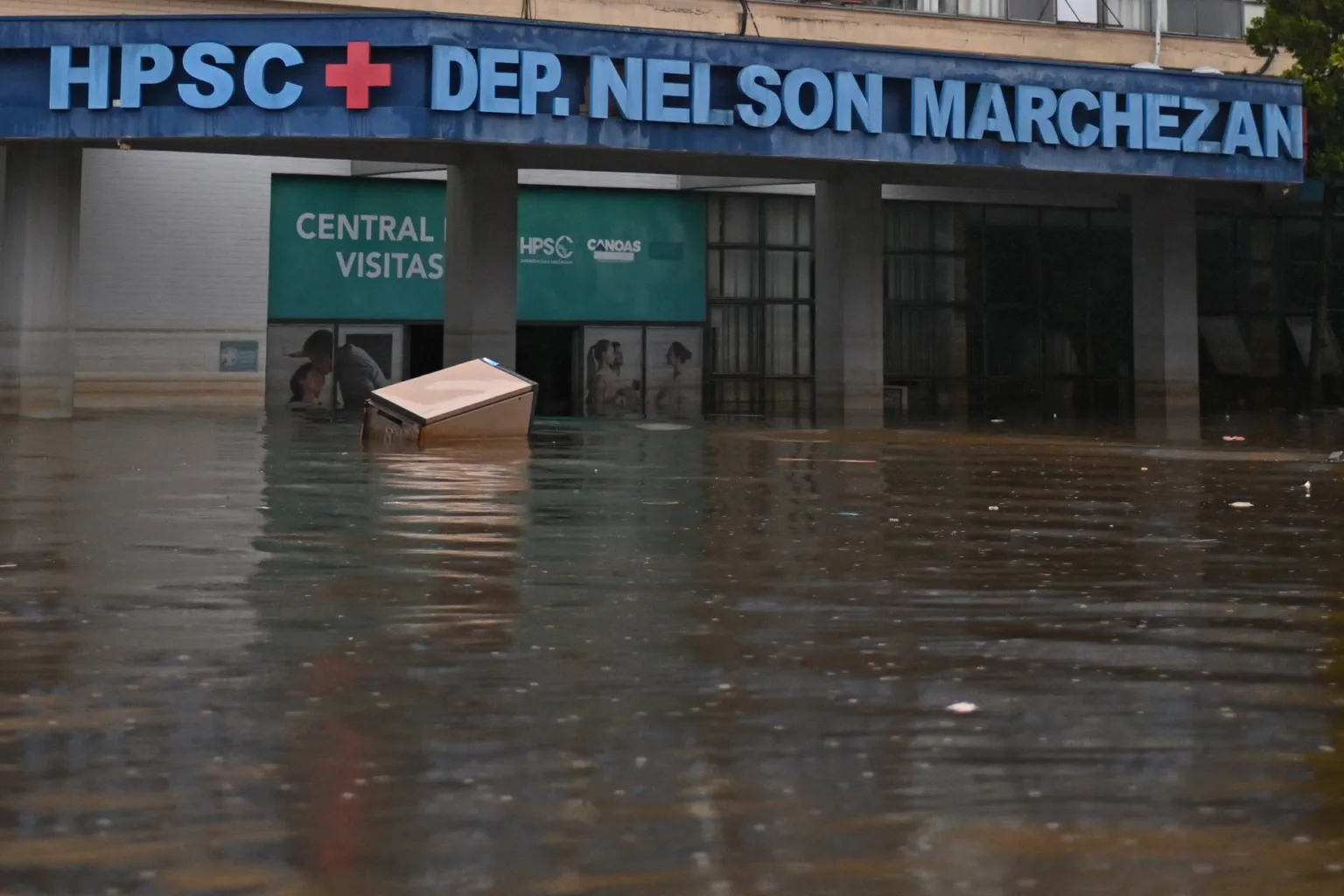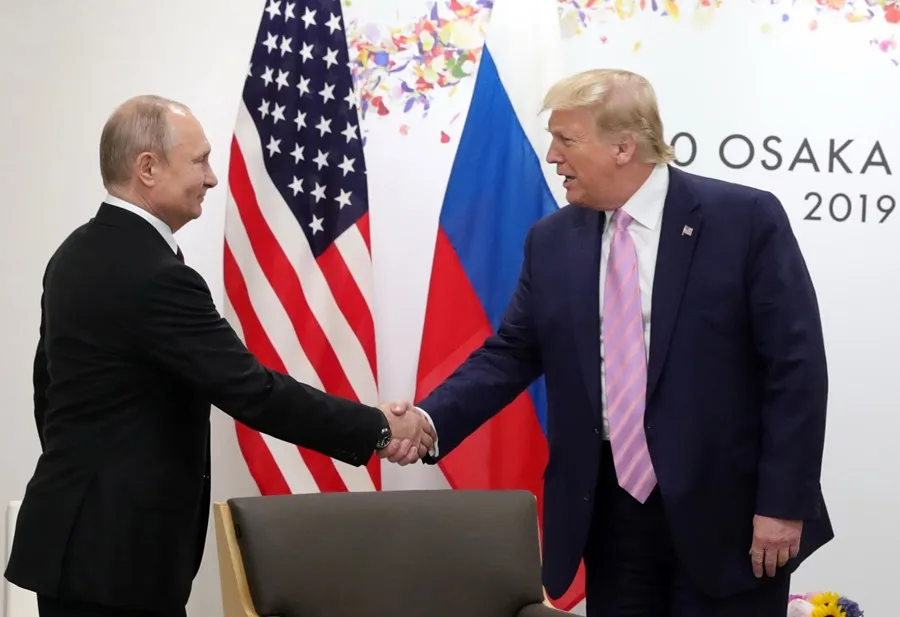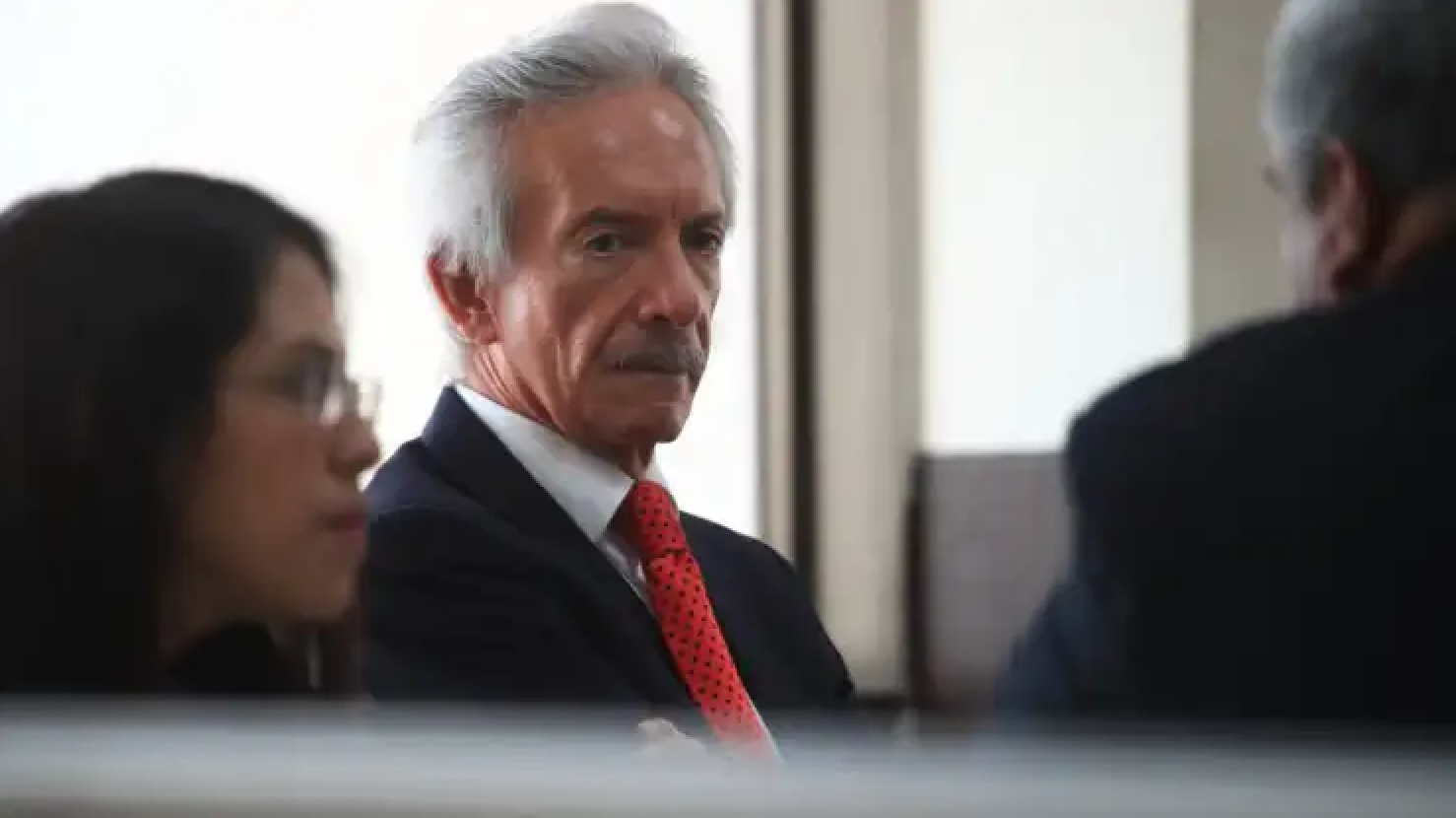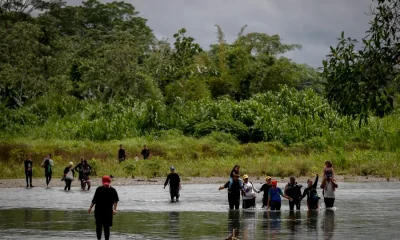International
Floods in southern Brazil put the public health system in check

Floods in southern Brazil have pushed the precarious public health system to the limit, with hospitals surrounded by water, patients being transferred to haste and dozens of outpatient clinics affected by this climate catastrophe, which so far leaves 156 dead and 94 missing.
The rains that have hit the state of Rio Grande do Sul since the end of April have submerged a large part of the municipality of Canoas, one of the most affected. Two-thirds of the population was evacuated and one of the city’s hospitals is still surrounded by water.
At the Hospital of Pronto Socorro Diputado Nelson Marchezan the water has almost completely blocked the entrance of visitors. A refrigerator floats around. “He’s lost,” in the words of Mayor Jairo Jorge.
The impact on the regional health structure has been tremendous.
According to initial calculations by the Brazilian Institute of Geography and Statistics and the Federal University of Rio Grande do Sul, at least 801 health posts in 123 cities were totally or partially flooded.
Some basic care units are completely destroyed. For this reason, several field hospitals have been set up urgently, some managed by the Armed Forces.
“We have a fairly large volume (of patients),” Cecilia Soster, a nurse responsible for the field hospital built in Porto Alegre, tells EFE.
The Army installed another one in the town of São Leopoldo, where about half of the health posts are closed.
“We are doing an average of 100-120 consultations per day,” says Lieutenant-Conel Frederico Fuhrmeister, the doctor who coordinates the unit.
In addition, in the first days of the disaster there was no drinking water and there were serious problems with the supply of medicines because many roads were closed and the international airport of Porto Alegre, the regional capital, closed, with the forecast that it will only work again from September.
Organ transplants were paralyzed for two weeks and resumed again thanks to the use of helicopters borrowed by other states.
“It is the biggest climate catastrophe experienced in Rio Grande do Sul. Many healthcare services have been affected,” Roberta Vanacôr, head of Epidemiological Surveillance of Rio Grande do Sul, tells EFE.
Faced with this, the Ministry of Health announced on Friday a package of 66.5 million reais (13 million dollars / 12 million euros) to reactivate flooded hospitals, increase health surveillance and expand the number of beds, among other actions.
On the other hand, large floods also lead to the possible appearance of outbreaks of diseases caused by waters contaminated by animals or even pesticides, something that worries the health authorities.
“We have many agricultural areas with reserves of agrotoxics that have been flooded,” warns Carlos Machado, of the Center for Studies and Research of Emergencies and Disasters in Health of the Fiocruz institute.
The possible appearance of cases of hepatitis A, acute diarrhea and leptospirosis is also feared. Vanacôr reveals that they have already received “suspicious samples” of this disease that is transmitted by contact with water contaminated by the urine of infected animals.
Respiratory syndromes are also worrying, not counting the impact on mental health. Regarding influenza, they have been arrested to vaccinate the more than 77,000 people who have had to leave their homes and today live in shelters.
The crowds and low temperatures of this time of year in this region are the perfect breeding ground for respiratory infections.
But it also adds that Brazil is going through the worst dengue epidemic since there are records, with almost five million cases and about 2,800 deaths since the beginning of the year, according to official data.
The Aedes aegypti mosquito, transmitter of the disease, proliferates in places with accumulated water and 90% of the municipalities of Rio Grande do Sul are affected by the floods.
Vanacôr clarifies that the cold shortens the life cycle of the mosquito, but warns that just a sequence of milder temperatures is enough for there to be an increase in dengue cases.
International
Trump urges Putin to reach peace deal

On Monday, U.S. President Donald Trump reiterated his desire for Russian President Vladimir Putin to “reach a deal” to end the war in Ukraine, while also reaffirming his willingness to impose sanctions on Russia.
“I want to see him reach an agreement to prevent Russian, Ukrainian, and other people from dying,” Trump stated during a press conference in the Oval Office at the White House.
“I think he will. I don’t want to have to impose secondary tariffs on Russian oil,” the Republican leader added, recalling that he had already taken similar measures against Venezuela by sanctioning buyers of the South American country’s crude oil.
Trump also reiterated his frustration over Ukraine’s resistance to an agreement that would allow the United States to exploit natural resources in the country—a condition he set in negotiations to end the war.
International
Deportation flight lands in Venezuela; government denies criminal gang links

A flight carrying 175 Venezuelan migrants deported from the United States arrived in Caracas on Sunday. This marks the third group to return since repatriation flights resumed a week ago, and among them is an alleged member of a criminal organization, according to Venezuelan authorities.
Unlike previous flights operated by the Venezuelan state airline Conviasa, this time, an aircraft from the U.S. airline Eastern landed at Maiquetía Airport, on the outskirts of Caracas, shortly after 2:00 p.m. with the deportees.
Interior Minister Diosdado Cabello, who welcomed the returnees at the airport, stated that the 175 repatriated individuals were coming back “after being subjected, like all Venezuelans, to persecution” and dismissed claims that they belonged to the criminal organization El Tren de Aragua.
However, Cabello confirmed that “for the first time in these flights we have been carrying out, someone of significance wanted by Venezuelan justice has arrived, and he is not from El Tren de Aragua.” Instead, he belongs to a gang operating in the state of Trujillo. The minister did not disclose the individual’s identity or provide details on where he would be taken.
International
Son of journalist José Rubén Zamora condemns father’s return to prison as “illegal”

The son of renowned journalist José Rubén Zamora Marroquín, José Carlos Zamora, has denounced as “illegal” the court order that sent his father back to a Guatemalan prison on March 3, after already spending 819 days behind barsover a highly irregular money laundering case.
“My father’s return to prison was based on an arbitrary and illegal ruling. It is also alarming that the judge who had granted him house arrest received threats,” José Carlos Zamora told EFE in an interview on Saturday.
The 67-year-old journalist was sent back to prison inside the Mariscal Zavala military barracks on March 3, when Judge Erick García upheld a Court of Appeals ruling that overturned the house arrest granted to him in October. Zamora had already spent 819 days in prison over an alleged money laundering case.
His son condemned the situation as “unacceptable”, stating that the judge handling the case “cannot do his job in accordance with the law due to threats against his life.”
-

 Central America5 days ago
Central America5 days agoNicaragua denounces Costa Rica’s position in SICA as aligned with foreign interests
-

 Central America5 days ago
Central America5 days agoNicaragua’s new judicial law consolidates power in Ortega and Murillo’s hands
-

 Central America5 days ago
Central America5 days agoPanama’s president declares Darién gap ‘closed’ amid sharp drop in migrant flow
-

 International3 days ago
International3 days agoSon of journalist José Rubén Zamora condemns father’s return to prison as “illegal”
-

 International5 days ago
International5 days agoMarco Rubio warns Venezuela against military action against Guyana
-

 International3 days ago
International3 days agoMiyazaki’s style goes viral with AI but at what cost?
-

 Central America2 days ago
Central America2 days agoPanama police clarifies that Interpol alert for Martinelli is still pending
-

 International2 days ago
International2 days agoDeportation flight lands in Venezuela; government denies criminal gang links
-

 Central America16 hours ago
Central America16 hours agoU.S. Homeland Security Secretary urges Mexico to strengthen Guatemala border
-

 International16 hours ago
International16 hours agoTrump urges Putin to reach peace deal
-

 Central America16 hours ago
Central America16 hours agoPanama grants Martinelli 72-hour extension to travel to Nicaragua
-
Central America4 days ago
Nicaragua revokes legal status of 10 more NGOs, bringing total to over 5,600





































































